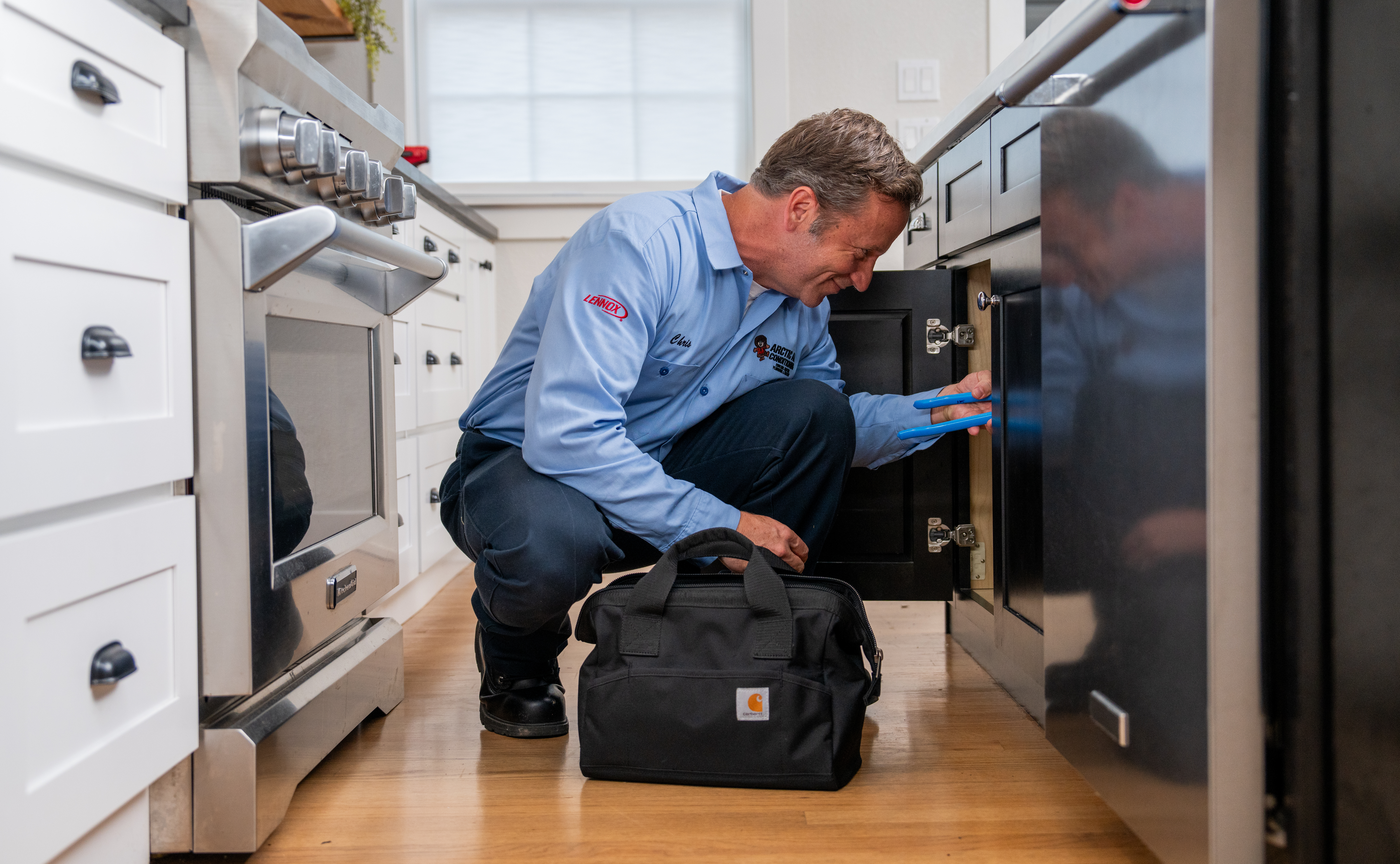Sidebar
"*" indicates required fields

High water pressure has many of the same effects as high blood pressure—it strains the system and can cause certain parts to fail prematurely.
While 40 to 45 psi is the most desirable range, most plumbing fixtures are designed to work with water pressure up to 80 psi. Anything higher than this can cause problems.
Learn what your water pressure is, the possible reasons for high water pressure, and how to fix this plumbing problem.
First, figure out whether you have high water pressure. Some signs include banging pipes, leaky faucets, water spitting from the tap when you turn it on, and premature water heater or dishwasher failure.
To see if these indicators hold water, buy a pressure gauge from a local home improvement store and attach it to an outside water faucet. If the gauge reads near 60 psi, leave it there for two days to see if the pressure increases. If it ever approaches or passes 80 psi, this means you have perilously high water pressure.
You’re probably wondering what’s behind your high water pressure. Here are the most probable reasons:
Even if your water pressure only occasionally rises above 80 psi, you should look into having a pressure regulating valve, or PRV, installed on your main water line.
Homes built after 2002 should already have one installed since this is when it became a requirement for all new construction. However, since the average lifespan of a PRV is seven to 12 years, it could be overdue for a replacement.
Now that you know the reasons for high water pressure and whether this problem affects your plumbing, it’s time to schedule water pressure repair. Our Central Jersey plumbers can check for a PRV and adjust or replace it if necessary.
If you don’t have a pressure-regulating valve, we’ll install one for you. To schedule plumbing services, contact Arctic Air Conditioning today!
"*" indicates required fields